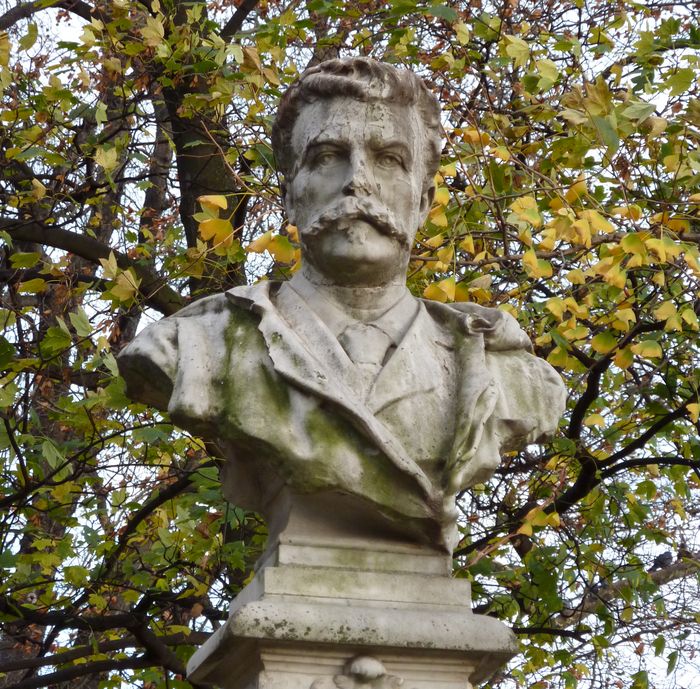Guy de Maupassant (1850-1893)
De Maupassant was born at the Chateau de Miromesnil in 1850. Distinguished though he is as a master of the novel form, and in spite of the fact that his half-dozen novels are powerful and significant works, it is his stories, of which he wrote several hundred, that constitute his chief claim to immortality. He is one of the first modern writers who consistently applied himself to the development of the short story as a separate literary form.
The Necklace is generally conceded to be one of Maupassant`s most highly finished achievements. Though it belongs technically to the “surprise” type so ingeniously utilized at a later date by O. Henry, the surprise which marks the point of the tale is introduced not for its own sake alone, but in order to reveal at a stroke the tragedy through which Mathilde has lived.
The present version, translated by Jonathan Sturges, is reprinted by permission of the publisher, from The Odd Number, Harper & Brothers.
The Necklace
She was one of those pretty and charming girls who are sometimes, as if by a mistake of destiny, born in a family of clerks. She had no dowry, no expectations, no means of being known, understood, loved, wedded, by any rich and distinguished man; and she let herself be married to a little clerk at the Ministry of Public Instruction.
She dressed plainly because she could not dress well, but she was as unhappy as though she had really fallen from her proper station; since with women there is neither caste nor rank; and beauty, grace, and charm act instead of family and birth. Natural fineness, instinct for what is elegant, suppleness of wit, are the sole hierarchy, and make from women of the people the equals of the very greatest ladies.
She suffered ceaselessly, feeling herself born for all the delicacies and all the luxuries. She suffered from the poverty of her dwelling, from the wretched look of the walls, from the worn-out chairs, from the ugliness of the curtains. All those things, of which another woman of her rank would never even have been conscious, tortured her and made her angry. The sight of the little Breton peasant who did her humble housework aroused in her regrets which were despairing, and distracted dreams.
She thought of the silent ante-chambers hung with Oriental tapestry, lit by tall bronze candelabra, and of the two great footmen in knee-breeches who sleep in the big armchairs, made drowsy by the heavy warmth of the hot-air stove. She thought of the long salons fitted up with ancient silk, of the delicate furniture carrying priceless curiosities, and of the coquettish perfumed boudoirs made for talks at five o`clock with intimate friends, with men famous and sought after, whom all women envy and whose attention they all desire.
Read More about Customized tour Bulgaria








